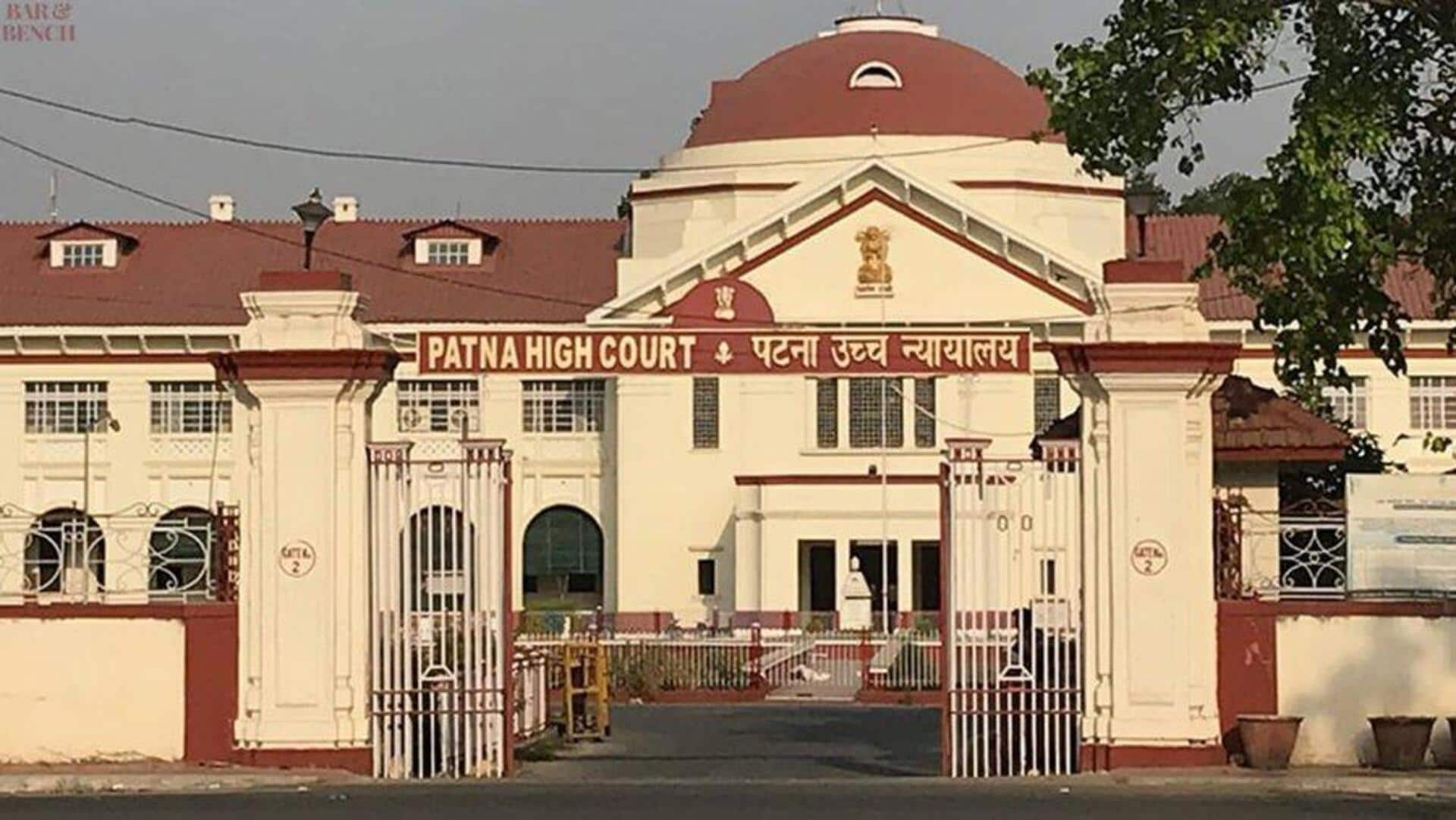
Calling spouse 'bhoot,' 'pishach' not cruelty: Patna High Court
What's the story
The Patna High Court has ruled that derogatory name-calling like "bhoot" (ghost) and "pishach" (vampire) by an estranged couple does not constitute "cruelty."
Justice Bibek Chaudhuri, a single-judge bench, made these remarks while hearing a petition from Sahdeo Gupta and his son, Naresh Kumar Gupta. The father-son duo are residents of Bokaro, Jharkhand.
They were challenging an order issued by courts in Bihar's Nalanda district on a complaint lodged by Naresh's former wife.
Case details
Case background: Couple's dispute over derogatory name-calling
The case dates back to 1994, when the wife filed a case against her husband and father-in-law, accusing them of physical and material torture to obtain a car as dowry.
The case was later transferred to Nalanda from Nawada, the wife's native place, upon a prayer by the father-son duo.
But in 2008, they received a one-year rigorous imprisonment sentence from the Chief Judicial Magistrate.
An appeal against this decision was dismissed by the Additional Sessions Court in 2018.
Legal progression
Legal journey: From lower courts to high court
Nearly five years later, the case was brought back to court. This time, the wife's counsel argued in the Patna High Court that calling a woman "bhoot" and "pishach" constitutes "immense cruelty."
However, the court disagreed. It stated that while abusive language is common in failed marriages, such instances do not necessarily constitute cruelty.
At the same time, the court acknowledged the complainant had been subjected to harassment and severe abuse but found no specific allegations against either petitioner.
Quash order
No document to show petitioners demanded a car
The court also noted that no evidence was presented to establish that the contesting petitioners personally demanded a Maruti car and that when such a demand was not met, the wife was subjected to cruelty.
It also took into account the fact that no specific complaints were leveled against the husband or his family.
In view of this, the court determined that the case was the outcome of personal grudges and differences between both parties.